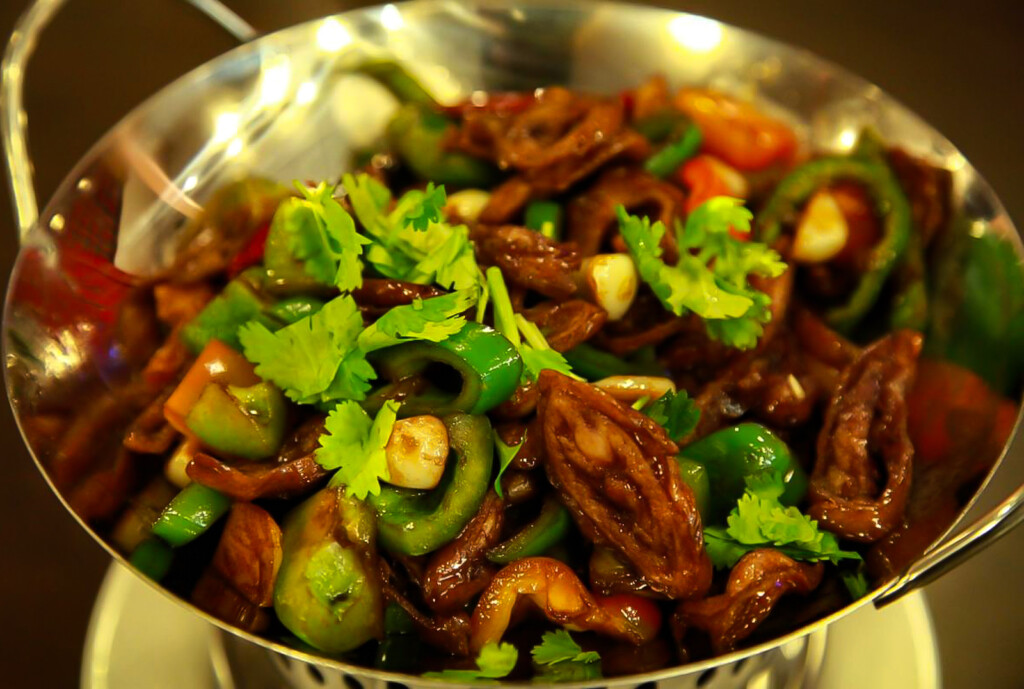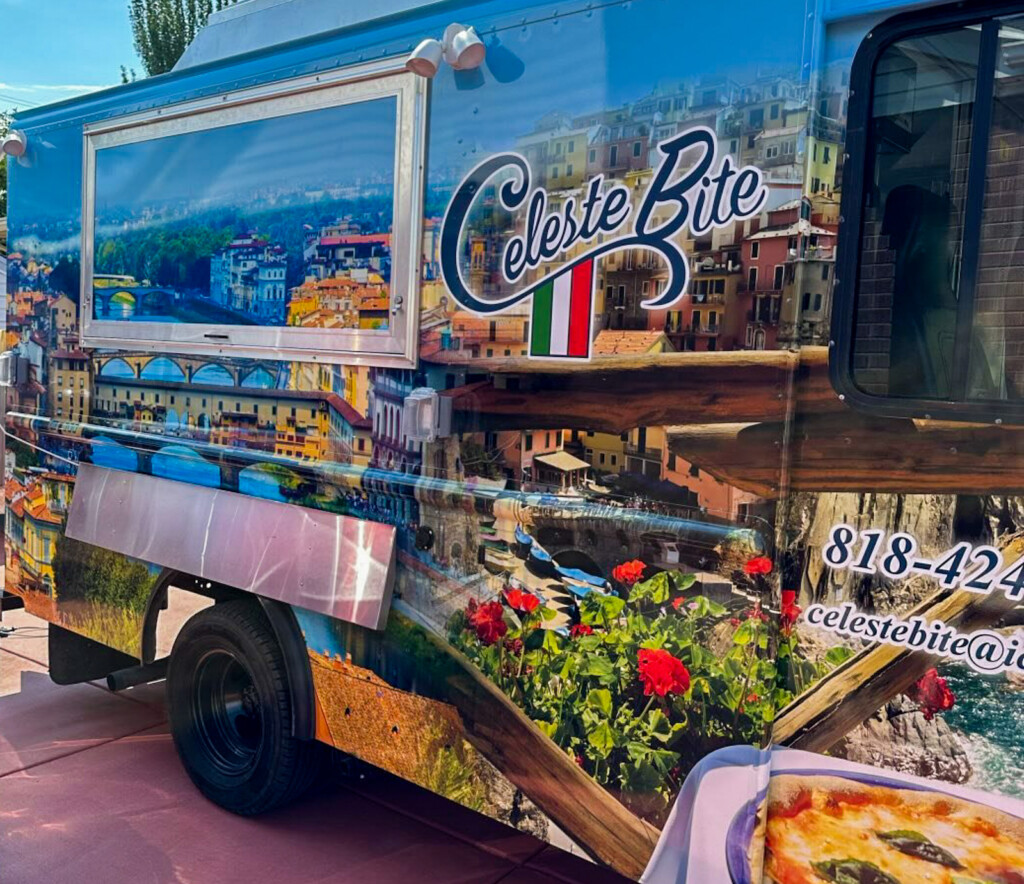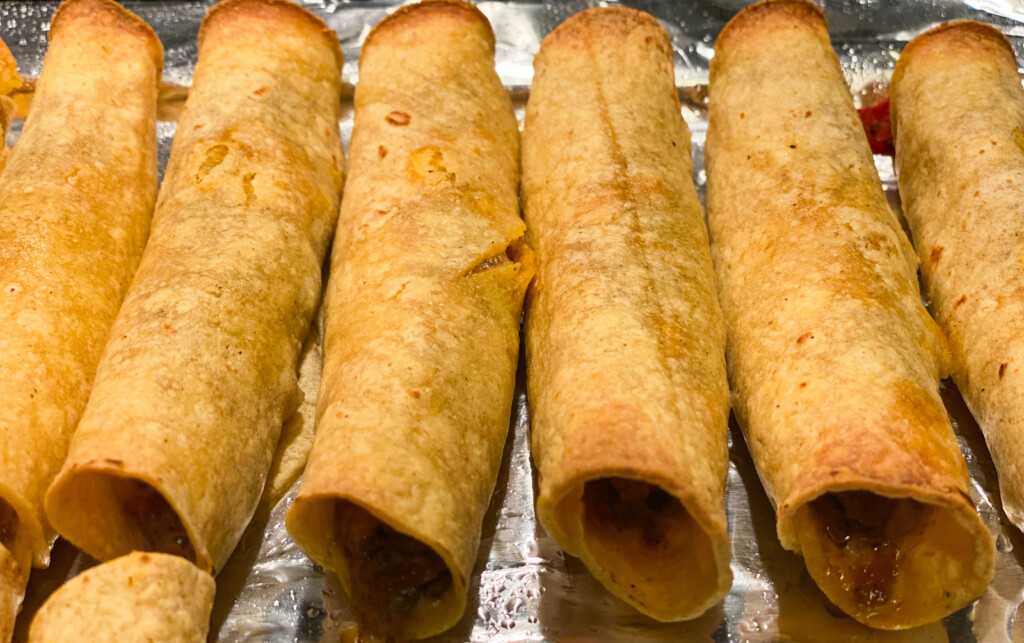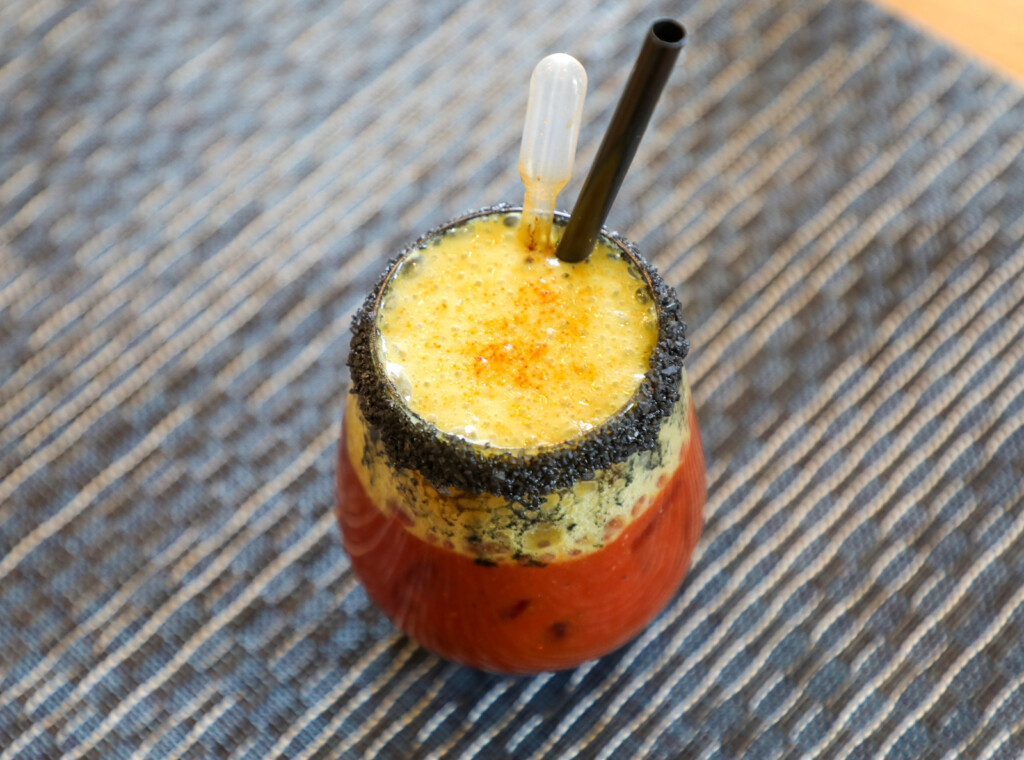For anyone who might not be familiar with it, Shabu Shabu is a popular Japanese hot pot dish known for its simplicity and freshness. The name “Shabu Shabu” comes from the sound that thinly sliced meat makes when swished through hot broth with chopsticks or tongs. At most Shabu Shabu restaurants, there are burners built right into the tabletops on which to heat broth to cook various ingredients.
Common Shabu Shabu ingredients include thinly sliced beef, vegetables like cabbage, mushrooms, carrots, sprouts and leafy greens, as well as noodles and/or rice. Dipping sauces such as ponzu, hot chili sauces, bang bang sauce, gyoza sauce and others are typically offered as condiments.
Sugar House now has a terrific Shabu Shabu restaurant with the opening of Kuchu Shabu, the sister restaurant to the original Park City location. Shabu Shabu is a fun, communal way to dine and that is particularly true of Kuchu Shabu, where General Manager Miles Broadhead and his friendly staff help make dining there a joy.
Pork Gyoza
Before jumping into Shabu Shabu, you’ll probably want to enjoy some of the excellent appetizers at Kuchu Shabu. The Pork Gyoza ($10) and Veggie Gyoza ($10) are great starters, as is Edamame, either salted ($8) or spicy with garlic ($8),
“The Kraken” Pork Rinds
More than half of the appetizers at Kuchu Shabu are gluten free and the kitchen is very flexible and accommodating in making dishes vegan and/or gluten free. Although definitely not vegan, “The Kraken” Pork Rinds ($8) are a big hit from the appetizer menu, as is Seared Ahi Tuna ($22).
Cauliflower Karaage
There are also a couple of gluten free Japanese-style Karaage dishes: Chicken Karaage ($12) and Cauliflower Karaage ($11), which are dusted in rice flour prior to frying. We especially liked the Cauliflower Karaage, sprinkled with minced scallions and served with dipping sauces including Bang Bang Sauce.
Among the decor at Kuchu Shabu are original Japanese works of art which were gifted to owner Austin Ornowski by a friend from Japan. The restaurant itself is spacious and beautifully appointed.
I was especially drawn to the beautiful antique Japanese knives on the wall made of Damascus steel.
“We don’t take ourselves too seriously,” said Miles Broadhead. “We want people to have fun eating here.” Hence, some lighthearted artwork on the walls as well, such as cats and kittens. Miles is nothing if not a hardcore cat lover.
Wild Mushroom Bowl
The Shabu Shabu process at Kuchu Shabu is as follows: First, guests each choose one or more proteins, which include a range of thinly sliced beef options, Utah elk, pork loin, shrimp, a wild mushroom bowl, or a vegetable bowl with tofu. My wife selected the wild mushroom bowl for her protein which, along with a variety of fresh mushrooms, contain sliced carrots, baby bok choy, broccoli, watermelon radish slices and more.
Snake River Farms American Waygu Flank
Once a protein is chosen, guests then select a broth for their Shabu Shabu from a trio that includes classic, creamy richly flavored Tonkotsu pork bone broth, a hearty Miso broth, or a Traditional Shabu Shabu broth with strong umami notes and hints of lemongrass. This was the broth my wife preferred with her mushroom bowl. The Traditional broth is both vegan and gluten free.
Japanese A5 Wagyu Ribeye
The protein selection for Shabu Shabu at Kuchu Shabu is particularly impressive – especially the beefy choices – and most can be ordered in 6 oz., 8 oz. or 10 oz. portions. Among the protein offerings are Japanese A5 Wagyu Ribeye ($89/6 oz.), Australian Wagyu Ribeye ($47/6 oz.), Snake River Farms American Wagyu Flank ($37/6 oz.), USDA Prime Ribeye ($33/6 oz.), Utah Elk ($35/6 oz.), Pork Loin ($24/6 oz.) and Shrimp ($27/6 oz.). The Japanese A5 Wagyu Ribeye in particular is a real treat – so beautifully marbled and tender, the slices need merely to barely touch the bubbling broth to be ready to devour.
All Shabu Shabu dinners are served with a choice of protein and broth, as noted, as well as a seasonal vegetable bowl, rice, udon noodles, and two dipping sauces.
Tantanmen Ramen
In addition to Shabu Shabu, Kuchu Shabu also has Ramen, Pho and Rice Bowls on the menu. For ramen, there is Tonkotsu Ramen ($18), Tantanmen ($18), and Steak & Kimchi Ramen ($20). I thought the Tantanmen Ramen was outstanding. It was a generous portion of perfectly cooked thin, fresh ramen noodles bathed in a dark tonkotsu broth made with black bean paste, topped with ground pork, soft-boiled ajitsuke tamago ramen eggs, carrot slices, scallions, seared bok choy, and cilantro, finished with a sansyo sprinkle (dried Japanese pepper).
Vegetable & Tofu Pho
As for Pho, it is also excellent at Kuchu Shabu. The Vietnamese noodle soup comes with thin rice noodles, a protein of your choice, scallions, lime, basil, cilantro, bean sprouts, and jalapeño slices. The pho can be made vegan and/or gluten free. We chose a Vegetable & Tofu ($16) bowl of pho with mushrooms, bok choy, broccoli and seared tofu sprinkled with black sesame seeds that, as mentioned, was top-notch.
In addition to all of that delicious food, Kuchu Shabu also serves cocktails, beer, spirits, wine and sake. As the commercial core of Sugar House continues to develop and grow, there’s an abundance of good dining options available in the neighborhood. In my opinion however, none is better than Kuchu Shabu, where great food and fun go hand-in-hand.
Photos by Ted Scheffler
Culinary quote of the week: “The only thing I like better than talking about food is eating.” – John Waters






